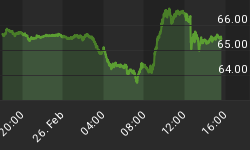SITUATION: Defense planning efforts in East Asia have been markedly influenced by China's bellicose response to the detention of a Chinese fisherman for ramming a Japanese naval boat in disputed waters.
ANALYSIS: The detention generated vituperative reactions from Beijing, out of character from its traditional policy of quiet insistence on territorial claims while building naval capacity. This episode, in conjunction with China's continuing claim of primacy in the South China Sea as a 'core interest', is encouraging increased discussion among its regional neighbors regarding naval collaboration.
Territorial Claims: Sino-Japanese tensions regarding the detention were inflamed by the location of the incident. The Diaoyu/Senkaku islands, situated in the East China Sea, are believed to be rich in oil and gas reserves and fish stocks. The islands are also close to important sea lanes. China, Japan, and Taiwan each claim sovereignty over the islands. After the release of the captain of the Chinese fishing boat on September 24, Chinese Premier Wen Jiabao told Japanese Prime Minister Naoto Kan that "the Diaoyu Islands have been Chinese territory since ancient times".
A similarly robust claim is being made for the South China Sea, which borders Indonesia, Malaysia, the Philippines, Singapore, and Vietnam among other states. A group of nine Vietnamese fishermen operating off the Paracel Islands in the South China Sea were detained by Beijing for four weeks. The fishermen were released on October 11, as the unresolved issue threatened to overshadow the Association of Southeast Asian Nations (ASEAN) Defense Ministers summit.
Regional Views: The inaugural ASEAN Defense Ministers '+ 8' Meeting, hosted by Hanoi on October 12 indirectly responded to Chinese naval aspirations. The summit was characterized by the ASEAN style of private consensual dialogue, rather than attempts to seek immediate conflict resolution. Attendees included the 10 ASEAN states, plus America, Australia, China, India, Japan, New Zealand, Russia, and South Korea. By involving these regional interlocutors, the new forum intends to inculcate a regional security approach that would seek to incorporate Chinese power projection within a cooperative security structure. This perspective was illustrated by the official summit theme of 'Strategic Cooperation for Peace, Stability and Regional Development'.
Meeting before the summit, US Defense Secretary Gates and Vietnamese Defense Minister Phung Quang Thanh sought to improve their bilateral relationship and increase maritime security cooperation. Indonesia, South Korea, and the Philippines are also stepping up naval cooperation efforts with America. While in Hanoi, Gates implicitly referred to China's claim to the South China Sea in public remarks, specifying that 'the US and Vietnam, as well as other nations in the region, share a common interest in maritime security and freedom of access to the global commons.
India in particular is seeking to actively curtail Chinese naval aspirations. New Delhi sees Beijing's present interest in the South China Sea as merely a first step toward greater designs upon the Indian Ocean. New Delhi established the Indian Ocean Naval Symposium in 2008, which intends to enhance maritime security cooperation among member states. Over 25 states attended the inaugural meeting. Requests from China to attend, even as an observer state, were refused. Bilateral defense talks between New Delhi and Hanoi, concluded on October 14, also resulted in agreement for India to assist Vietnamese naval modernization.
New Naval Technologies: China is investing heavily in naval development to buttress its territorial claims. Its emerging Jin-class nuclear-armed submarine fleet is stationed on Hainan Island in the South China Sea. Regional uncertainty regarding its patrol routes further exacerbate tensions surrounding Chinese naval ambitions.
China is believed to be developing its first indigenous aircraft carrier. A Chinese newspaper editorial in March prepared the ground for its introduction by recalling the soothing cooperative language of ASEAN joint statements: "The Chinese navy equipped with aircraft carriers and other advanced weaponry would be able to better help maintain regional stability and world peace." It is difficult to find such a justification for Beijing's anti-ship ballistic missile program, overtly intended to block American access to contested naval zones, such as the Taiwan Strait, in the event of a conflict. Beijing is fielding new military frigates and destroyers designed to launch such missiles.
BOTTOM LINE: The Sino-Japanese fisherman episode has served to promote increased regional defense collaboration efforts. These intend to hedge against the possibility that China will seek to support territorial claims in such an aggressive manner again. The dispute, and the corollary Chinese detention of Vietnamese fishermen, served as the backdrop to the inaugural ASEAN Defense Ministers '+8' Meeting. In its intention to develop a cooperative regional security structure involving America, India, Japan, and South Korea among other powers, the new forum seeks to minimize diplomatic room for China to dictate the terms of its rise to neighbors on a strict bilateral 'divide-and-conquer' basis.
Moves from several summit member states to improve naval collaboration with America illustrates the extent to which the US Pacific Fleet plays an indispensable role as the backstop of regional security. These new defense cooperation efforts should suggest to China's leaders that multilateral confidence-building, rather than aggressive brinkmanship, represents a better way to advance its regional interests.
By. Jen Alic of the Global Intelligence Report
Try our Geopolitical News service for Free, with a 7 day free trial. For more info visit: http://www.globalintelligencereport.com/categories/Professional-Level-1
















